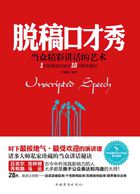27. Freedom. First, then, it is carefully to be remembered, That freedom consists in the dependence of the existence, or not existence of any action, upon our volition of it; and not in the dependence of any action, or its contrary, on our preference. A man standing on a cliff, is at liberty to leap twenty yards downwards into the sea, not because he has a power to do the contrary action, which is to leap twenty yards upwards, for that he cannot do; but he is therefore free, because he has a power to leap or not to leap. But if a greater force than his, either holds him fast, or tumbles him down, he is no longer free in that case; because the doing or forbearance of that particular action is no longer in his power. He that is a close prisoner in a room twenty feet square, being at the north side of his chamber, is at liberty to walk twenty feet southward, because he can walk or not walk it; but is not, at the same time, at liberty to do the contrary, i.e. to walk twenty feet northward.
In this, then, consists freedom, viz. in our being able to act or not to act, according as we shall choose or will.
28. What volition and action mean. Secondly, we must remember, that volition or willing is an act of the mind directing its thought to the production of any action, and thereby exerting its power to produce it. To avoid multiplying of words, I would crave leave here, under the word action, to comprehend the forbearance too of any action proposed: sitting still, or holding one's peace, when walking or speaking are proposed, though mere forbearances, requiring as much the determination of the will, and being as often weighty in their consequences, as the contrary actions, may, on that consideration, well enough pass for actions too: but this I say, that I may not be mistaken, if (for brevity's sake) I speak thus.
29. What determines the will. Thirdly, the will being nothing but a power in the mind to direct the operative faculties of a man to motion or rest, as far as they depend on such direction; to the question, What is it determines the will? the true and proper answer is, The mind. For that which determines the general power of directing, to this or that particular direction, is nothing but the agent itself exercising the power it has that particular way. If this answer satisfies not, it is plain the meaning of the question, What determines the will? is this,- What moves the mind, in every particular instance, to determine its general power of directing, to this or that particular motion or rest? And to this I answer,- The motive for continuing in the same state or action, is only the present satisfaction in it; the motive to change is always some uneasiness:
nothing setting us upon the change of state, or upon any new action, but some uneasiness. This is the great motive that works on the mind to put it upon action, which for shortness' sake we will call determining of the will, which I shall more at large explain.
30. Will and desire must not be confounded. But, in the way to it, it will be necessary to premise, that, though I have above endeavoured to express the act of volition, by choosing, preferring, and the like terms, that signify desire as well as volition, for want of other words to mark that act of the mind whose proper name is willing or volition; yet, it being a very simple act, whosoever desires to understand what it is, will better find it by reflecting on his own mind, and observing what it does when it wills, than by any variety of articulate sounds whatsoever. This caution of being careful not to be misled by expressions that do not enough keep up the difference between the will and several acts of the mind that are quite distinct from it, I think the more necessary, because I find the will often confounded with several of the affections, especially desire, and one put for the other; and that by men who would not willingly be thought not to have had very distinct notions of things, and not to have writ very clearly about them. This, I imagine, has been no small occasion of obscurity and mistake in this matter;and therefore is, as much as may be, to be avoided. For he that shall turn his thoughts inwards upon what passes in his mind when he wills, shall see that the will or power of volition is conversant about nothing but our own actions; terminates there; and reaches no further; and that volition is nothing but that particular determination of the mind, whereby, barely by a thought the mind endeavours to give rise, continuation, or stop, to any action which it takes to be in its power. This, well considered, plainly shows that the will is perfectly distinguished from desire; which, in the very same action, may have a quite contrary tendency from that which our will sets us upon. A man, whom I cannot deny, may oblige me to use persuasions to another, which, at the same time I am speaking, I may wish may not prevail on him. In this case, it is plain the will and desire run counter. I will the action; that tends one way, whilst my desire tends another, and that the direct contrary way. A man who, by a violent fit of the gout in his limbs, finds a doziness in his head, or a want of appetite in his stomach removed, desires to be eased too of the pain of his feet or hands, (for wherever there is pain, there is a desire to be rid of it), though yet, whilst he apprehends that the removal of the pain may translate the noxious humour to a more vital part, his will is never determined to any one action that may serve to remove this pain. Whence it is evident that desiring and willing are two distinct acts of the mind; and consequently, that the will, which is but the power of volition, is much more distinct from desire.
31. Uneasiness determines the will. To return, then, to the inquiry, what is it that determines the will in regard to our actions? And that, upon second thoughts, I am apt to imagine is not, as is generally supposed, the greater good in view; but some (and for the most part the most pressing) uneasiness a man is at present under.















